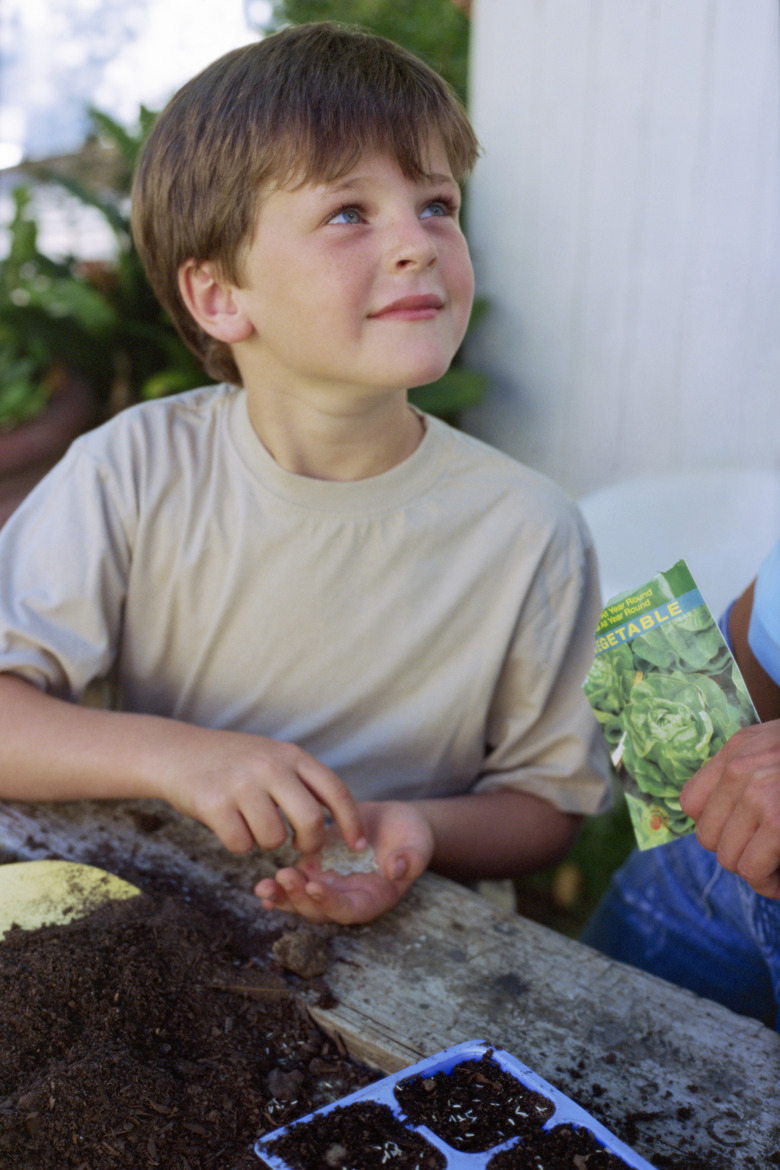Definition Of Organic Seeds
Farmers grow organic produce by not using any chemicals for fertilizer, weed control or pesticides. This keeps the organic produce free of chemical residue. Growers still need to use methods to control pests and weeds, but instead of using chemicals, organic growers use mechanical means to remove weeds or pests — such as hoeing — or a substance that has been approved for organic growing. The U.S. Department of Agriculture maintains the National List of Approved and Prohibited Substances, which enumerates what options organic farmers have to deal with these challenges.
Chemical-Free
Chemical-Free
For a seed to be organic, the plant it came from must have been grown organically, and it must not be treated with any chemicals after harvest. When organic growing first came to national prominence, large quantities of seeds that came from chemical-free plants weren't available. Organic seeds for most agriculturally valuable crops are now available, though some crop seed quantities remain limited. The USDA, therefore, allows farmers to call their produce organic, despite being grown from seed that isn't organic, if there is no organic source and the farmer otherwise follows an organic regimen. Unfortunately, using nonorganic seeds when organic seeds are available decertifies the plot the seed was planted in for three years.
Untreated
Untreated
Growers sometimes treat nonorganic seeds with anti-fungal and anti-bacterial chemicals prior to packaging to give them an advantage fighting fungal and bacterial seedling foes, once they germinate. You can get untreated seeds, but growers produced these seeds using an intensive chemical regimen. Home growers who can't find organic seeds might settle for untreated seeds, although they are neither commonly found locally nor truly organic.
Non-GMO
Non-GMO
Scientists create genetically modified organisms by inserting segments of DNA from one organism into another, usually across species, to produce traits that they can't produce through normal breeding methods. Some GMO seeds grow into plants that are resistant to the chemicals that the same company sells for weed control. That means that farmers can use higher levels of weed killer while growing these plants. If you are interested in organic farming, this is the opposite of what you want in a seed, and GMO seeds are not organic.
Heirloom
Heirloom
Agricultural companies develop seeds for a variety of qualities including high yields, shipping endurance and extended freshness of the edible part of the plant. Often, to produce seeds that grow into plants that have these properties, the breeders have to combine two plant lines to get offspring that meet their goals. This is because the second generation of seeds doesn't produce the same vigor as the first generation, f1, crosses. The upshot of this process is that the home grower has to purchase new seeds every year. If you want to harvest seed from the plants you grow yourself, and therefore control how the plants are fertilized and treated, what you want are heirloom seeds. Heirloom seeds are often also organic, but they need not be. Read the label to be sure.
Cite This Article
MLA
Rose, Kasandra. "Definition Of Organic Seeds" sciencing.com, https://www.sciencing.com/definition-organic-seeds-19372/. 24 April 2017.
APA
Rose, Kasandra. (2017, April 24). Definition Of Organic Seeds. sciencing.com. Retrieved from https://www.sciencing.com/definition-organic-seeds-19372/
Chicago
Rose, Kasandra. Definition Of Organic Seeds last modified August 30, 2022. https://www.sciencing.com/definition-organic-seeds-19372/
